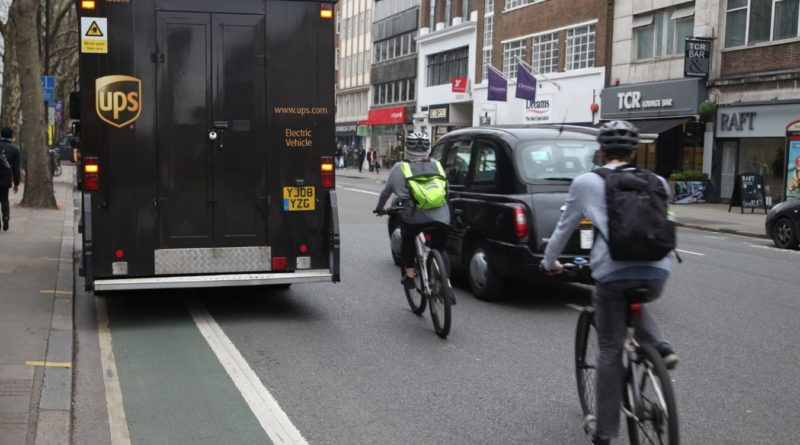Reporting guidelines for road collisions launch during road safety week
The UK’s first media reporting guidelines for road collisions are being launched today during UN Global Road Safety Week 2021, 17-23 May, in a bid to help reinforce existing codes of conduct for reporting in broadcasting, online and in print.
Media has a powerful role to play in shaping public discourse, and a public consultation on draft Guidelines in Autumn 2020 received almost 200 respondents from members of the public, road safety organisations, media, legal, and policing professions, 72% of whom agreed with the Guidelines’ principles, with a further 21% supporting its aims.
The ten Guidelines incorporating those responses are supported by road safety and road user organisations and professionals, including the AA, the FIA Foundation, RoadPeace, the Transport Research Laboratory, and Transport for London, British Cycling, Cycling UK and Living Streets.
Professor Rachel Aldred, Director, Active Travel Academy, said: “The Active Travel Academy is delighted to have developed these guidelines which are based on research and expert input. We know much good road collision reporting already exists and we hope that the guidelines will help spread this good practice.
“The research tells us that language matters, as it helps shape how we see and treat others. So for instance referring to drivers rather than only their vehicles helps remind us that behind every vehicle – be it a car, an HGV, a cycle or a motorcycle – is a person making decisions that affect the safety of others.”
The ten clauses refer to accuracy, fairness, non-discrimination and justice when it comes to reporting. Clauses recommend journalists, among other things, avoid use of the term ‘accident’, say ‘driver’ instead of ‘car’, and provide context to road collisions, rather than presenting them as isolated incidents. Additionally, the Guidelines also offer journalists some contacts in road safety, policing and law.
Edmund King, AA president, said: “The impact of five deaths per day across UK roads sadly tends to get diluted. Imagine the outcry if a report stated that all passengers in 56 full coaches had died. That is the annual equivalent of five people dying each day. There would be a national outcry, public inquiries, prime ministerial statements and action taken. Each death on the roads is a personal tragedy irrespective of mode of transport. Hence it is important that all road users are treated equally in the reporting of collisions.”
Michelle Stanistreet, NUJ general secretary, said: “Members of the NUJ ethics council have been involved in the creation of these new guidelines and have supported the project from its inception. We hope the information can help journalists and students as well as encourage accurate and fair reporting.”
The Guidelines were co-ordinated by journalist Laura Laker with the University of Westminster’s Active Travel Academy, with input from a broad range of professionals. Responses to the consultation in Autumn 2020 revealed how powerfully road danger impacts people’s lives, particularly those who walk and cycle.
The Guidelines are available on dedicated website www.rc-rg.com/guidelines, including in an accessible format. The consultation report will also be published on the website today.



